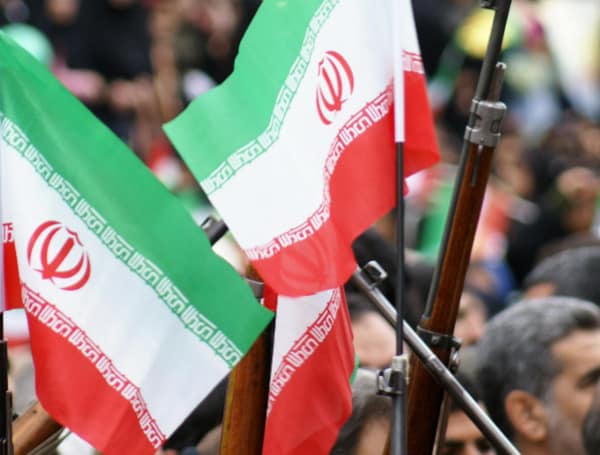In an escalation of its “maximum pressure” campaign against Iran, the U.S. Department of the Treasury’s Office of Foreign Assets Control (OFAC) today announced sanctions targeting a Chinese independent “teapot” refinery, three port terminal operators in Shandong Province, and numerous entities involved in Iran’s clandestine oil shipping network, known as the “shadow fleet.”
This marks the third time OFAC has targeted a teapot refinery and the first instance of sanctions against terminal operators in Shandong, a key hub for Iranian oil imports.
The designated entities include Hebei Xinhai Chemical Group Co., Ltd., a Hebei-based refinery that has reportedly purchased hundreds of millions of dollars’ worth of Iranian crude oil facilitated by shadow fleet vessels. OFAC also sanctioned Xing AO Energy PTE. LTD., a Singaporean oil broker owned by Hebei Xinhai.
READ: Florida Sen. Scott Condemns ‘Axis Of Evil’ Attending Putin’s Victory Day Celebration
Furthermore, Treasury took aim at three companies operating a port terminal at Dongying Port in Shandong Province, which has received multiple shipments of Iranian oil since 2024. The sanctioned firms are Baogang (Dongying Donggang) Logistics and Warehousing Co., Ltd., the current controlling shareholder of Shandong Jingang Port Co., Ltd, and previously, Shandong Baogang International Port Co., Ltd.
Secretary of the Treasury Scott Bessent stated, “As part of President Trump’s broad and aggressive maximum pressure campaign, Treasury today is targeting another teapot refinery that imported Iranian oil. The United States remains resolved to intensify pressure on all elements of Iran’s oil supply chain to prevent the regime from generating revenue to further its destabilizing agenda.”
The sanctions are being imposed under Executive Order (E.O.) 13902, which targets Iran’s petroleum and petrochemical sectors, and E.O. 13846, which targets those supporting the National Iranian Oil Company (NIOC). NIOC was previously blocked in 2020 for its financial support to the Islamic Revolutionary Guard Corps-Qods Force (IRGC-QF).
READ: US-UK Trade Deal: What It Means For Businesses And Consumers
Cracking Down on the Shadow Fleet
In a bid to further cripple Iran’s ability to illicitly export oil, OFAC also designated several companies and vessels involved in the shadow fleet, which Iran uses to mask its petroleum shipments primarily to China through ship-to-ship (STS) transfers. The sanctioned vessels include the Panama-flagged STAR TWINKLE 6, LAMD, SKADI, and BIG MAG, the Sao Tome and Principe-flagged IMPALAS, and the San Marino-flagged THANE.
The owners of these vessels, Star Twinkle Shipping Limited, Hong Kong Prime Trading Co., Ltd., Skadi Limited, Propitious Forever Trading Co Ltd, Embrace Que Limited, and Nissho Lines Incorporated, all based in Hong Kong or the United Kingdom, were also designated.
Additionally, OFAC sanctioned two vessel captains, Indian nationals Ketan Agarwal and Lincoln Francisco Viegas, for their roles in serving on board sanctioned shadow fleet vessels and facilitating Iranian oil exports for several years.
READ: Texas Sen. Cornyn Intros Bill To Codify Death Penalty For Illegal Immigrant Murderers
Sanctions Implications
As a consequence of these actions, all property and interests in property of the designated individuals and entities within the United States or under the control of U.S. persons are now blocked and must be reported to OFAC. U.S. persons are generally prohibited from engaging in any transactions with these blocked individuals and entities. Violations of U.S. sanctions can lead to civil or criminal penalties.
This latest move by the U.S. Treasury underscores its commitment to enforcing sanctions on Iran’s oil sector and disrupting the networks that enable its exports, particularly to China. The targeting of both the demand side (refineries and terminals) and the supply side (vessels and facilitators) signals a more comprehensive approach to curtailing Iran’s oil revenue. While the immediate impact on global oil markets remains to be seen, this action is expected to further strain the economic relationship between the U.S. and entities involved in purchasing and transporting Iranian oil.
Please make a small donation to the Tampa Free Press to help sustain independent journalism. Your contribution enables us to continue delivering high-quality, local, and national news coverage.
Connect with us: Follow the Tampa Free Press on Facebook and Twitter for breaking news and updates.
Sign up: Subscribe to our free newsletter for a curated selection of top stories delivered straight to your inbox.
